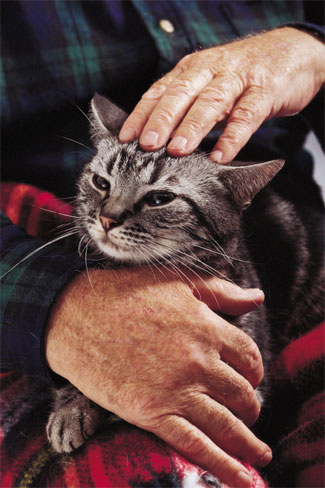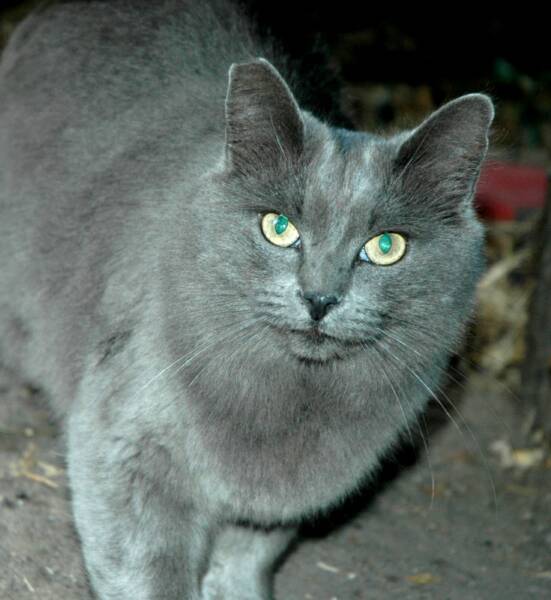East Contra Costa County
Homeless Animals Lifeline Organization
FERAL CAT NETWORK
"MamaCat" was one of the first cats that were trapped and spayed under H.A.L.O.'s Feral Cat Network TNR program.
About FCN
The Feral Cat Network (FCN) is a H.A.L.O. Co-Op concerned with the overwhelming number of feral cats and abandoned, unaltered strays in East County. FCN educates the public about the benefits of trap-neuter-release (TNR); provides traps; offers information about spaying, neutering, and monitoring of feral cat populations; and educates the community about responsible pet ownership and alternatives to pet abandonment.
How Do Feral Cats Affect My Area?
Feral and stray cats are typically unvaccinated and may carry diseases that can spread to pet and human populations. These cats are also often malnourished, motivating nuisance behaviors such as raiding garbage cans, loitering around homes and offices, and fighting with one another over territories. Feral and stray cats also affect the ecology of an area. East County is still largely agricultural in nature. The farms rely on the natural inhabitants of the land (birds, insects, etc.) in order to thrive. Feral cat populations disturb this balance and create problems for the farmers and their produce.
Why Trap-Neuter-Release (TNR)?
Fertile cats (those that are unaltered) breed often and they give birth in large numbers. It is estimated that two unaltered cats have the potential of breeding two litters a year with an average survival rate of 2.8 kittens. At that rate, two adult cats can contribute 12,680 cats to an area within five years.
Why Does TNR Work?
The science behind TNR says that cats (a colony-based species) typically remain in a given area (territory) throughout their lives. Removing or destroying cats that live in an area simply makes room for other colonies to move in. TNR allows the colonies to live out their unfertile lives in an area, defending these territories, while slowly decreasing in numbers until the area is free of them.
How to Get Started with TNR
TNR works by allowing an individual to humanely trap a feral cat. The cat is then brought to a veterinary clinic for spaying or neutering. After the procedure, the cat recovers in a designated recovery area (often in a recovery crate) until released into its original habitat.If you have feral or stray cats in your area you may call H.A.L.O. to request a trap. H.A.L.O. requires a fully-refundable $50 deposit per trap (two traps maximum). The deposit is refunded upon return of the trap. You must make arrangements/appointment with a veterinarian to alter the cat, and you are responsible for providing a recovery area for the cat after the surgery. If you would like information about affordable places to alter a feral cat please call H.A.L.O. Well-Pet Vet Clinic in Pittsburg, Tail Way Inn Veterinary Hospital, and Contra Costa Animal Services offer discounts on spaying and neutering.
How You Can Help FCN
FCN is nearly 100% funded by grants and donations. The faltering economy has had a negative effect on organizations that provide grants for programs such as this. As such, FCN has experienced a significant decrease in funds.FCN is in need of traps, recovery cages, and other supplies. The program is also in need of funds for surgeries. When funded, FCN provides money to the public for spaying and neutering. H.A.L.O. appreciates monetary donations designated for the FCN program. To contribute, simply send a donation (by check or online) and designate FCN in the notes section.
Feral Cat Support Line 925-779-2183



